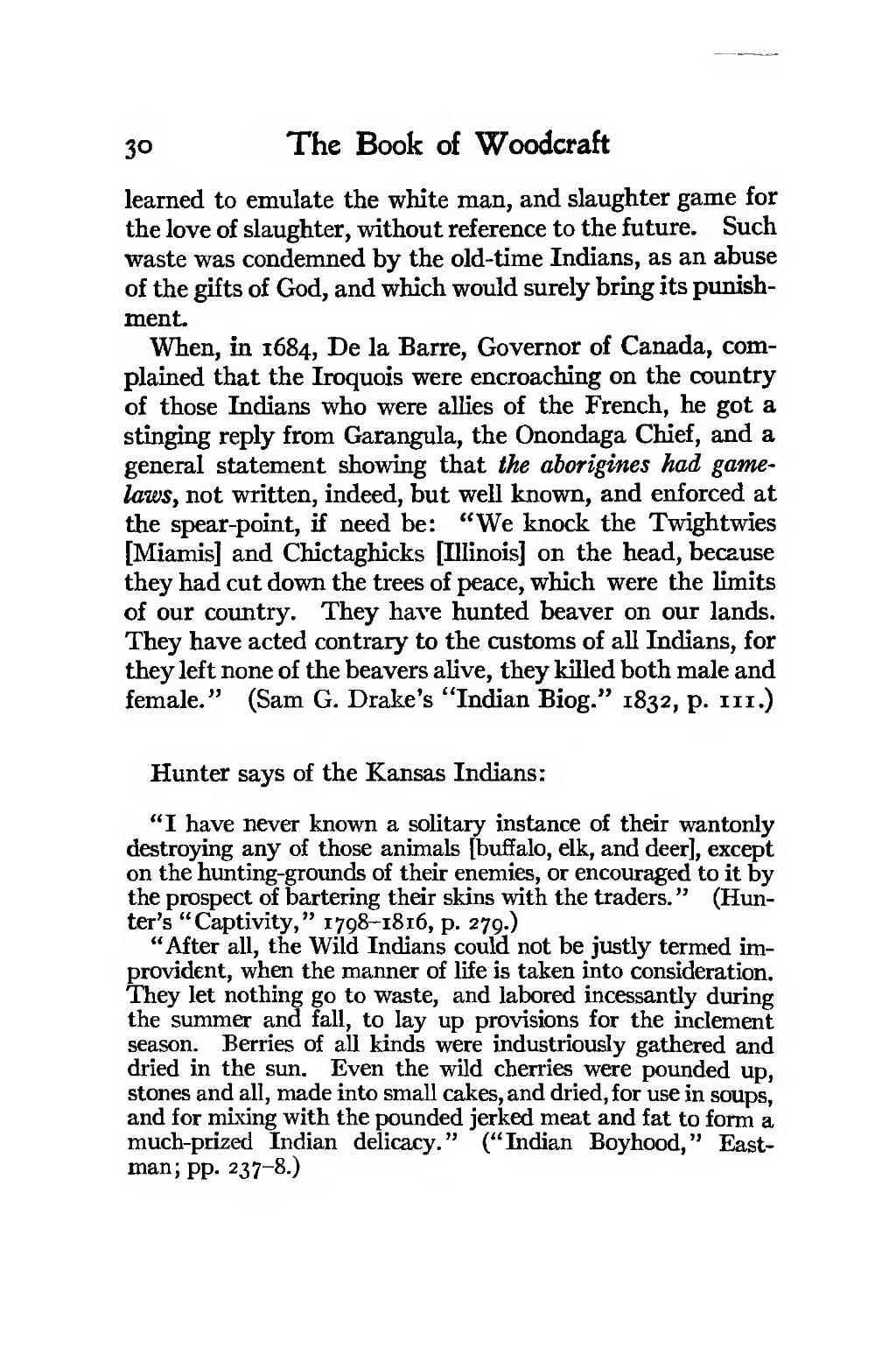30 The Book of Woodcraft learned to emulate the white man, and slaughter game for the love of slaughter, without reference to the future. Such waste was condemned by the old-time Indians, as an abuse of the gifts of God, and which would surely bring its punish- ment. When, in 1684, De la Barre, Governor of Canada, com- plained that the Iroquois were encroaching on the country of those Indians who were allies of the French, he got a stinging reply from Garangula, the Onondaga Chief, and a general statement showing that the aborigines had game- laws, not written, indeed, but well known, and enforced at the spear-point, if need be: "We knock the Twightwies [Miamis] and Chictaghicks [Illinois] on the head, because they had cut down the trees of peace, which were the limits of our country. They have hunted beaver on our lands. They have acted contrary to the customs of all Indians, for they left none of the beavers aUve, they killed both male and female." (Sam G. Drake's "Indian Biog." 1832, p. iii.) Hunter says of the Kansas Indians: "I have never known a solitary instance of their wantonly destroying any of those animals [buffalo, elk, and deer], except on the hunting-grounds of their enemies, or encouraged to it by the prospect of bartering their skins with the traders. " (Hun- ter's "Captivity," 1798-1816, p. 279.) "After all, the Wild Indians could not be justly termed im- provident, when the manner of hfe is taken into consideration. They let nothing go to waste, and labored incessantly during the summer and fall, to lay up provisions for the inclement season. Berries of all kinds were industriously gathered and dried in the sun. Even the wild cherries were pounded up, stones and all, made into small cakes, and dried, for use in soups, and for mixing with the pounded jerked meat and fat to form a much-prized Indian delicacy." ("Indian Boyhood," East- man; pp. 237-8.)
Stránka:book 1913.djvu/52
Z thewoodcraft.org
Tato stránka nebyla zkontrolována
